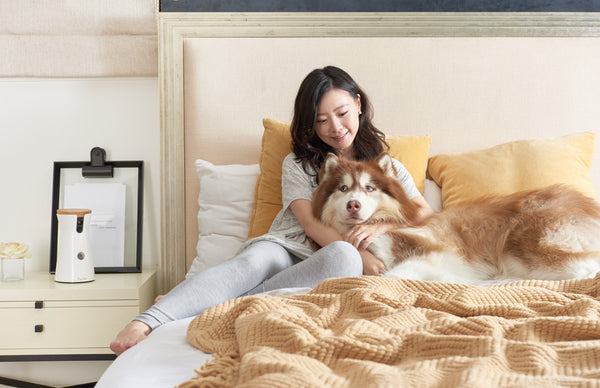Without communication, the world would be a very confusing place. Humans have mastered the art of communication, but what about man's best friend? Can you imagine how difficult it would be for a German speaking toddler to communicate in Arabic all of a sudden? This is exactly the case with our dogs, they simply do not speak our language, so they will need to be taught how to understand a second language – the one we speak.
Why We Do It?

Simply put, we treat our dogs like human children. We talk to our dogs, because that is the way we communicate, and it comes naturally to us. Linguists conducted a study and found that there are great similarities in the way humans speak to babies and dogs. When we talk to babies and dogs, we often speak in a high-pitched voice. We also speak slower, as to help a non-speaker understand us better.
Do Dogs Understand?

We have all been amazed before at how well our dogs understand us. By just mentioning the words “Let's go for a walk” clearly shows how well dogs actually form associations to words. But the question remains, do they actually understand what we are saying or does it come down to our tone of voice or body language? The average dog can learn up to 165 words in their lifetime, with some dogs that have shown to understand over 1000 words. According to research done by Brian Hare, a professor of evolutionary anthropology from Duke University, it shows that dogs process words on the left side of their brains, just like we humans do. Tone and pitch on the other hand, is processed on the right side of their brains.
Related Post: The World Through The Eyes of a Dog
How to Communicate with Puppies?
If you want to tell him that he is a good boy and generally talk to him, there is no real art to it. Where communication becomes important is when you are training your puppy. Here are some tips you should follow:
Hand Gestures
Remember that your puppy won't know the meaning of a word when it first hears it, so it is our jobs to show them what the word means. We can do this by using hand signals. For instance, it you want your puppy to “stay”, hold out your palm and indicate a wait position while saying the word “stay”. This way your puppy can associate the word with a certain action.
Tone of Voice
We can also assist our puppies to understand us better by using our tone of voice. If your puppy is chewing at something it should not be chewing on, or if it is eliminating in the house, saying “no” in a friendly voice won't do the trick, as this will be misunderstood as praise. But “no” in a firm voice can quickly communicate to your puppy that you are disapproving of its behavior. When calling your puppy towards you, always use a friendly tone, as nobody would want to go towards a person calling them in an angry voice. Research has shown that dogs can hear one word in a neutral tone like “walk” and not react so much to it as when it is said in an exciting way. Dogs are better at understanding us because of how we say something, and not always what we say.
Keep It Simple

Use short words or phrases instead of long sentences. It is much easier for your puppy to form word associations with short and single words. Stay consistent with your use of words as to not confuse your puppy. For instance, don't say “wait” one day and “stay” the next for the same action. Puppies can only effectively associate words if you are clear and consistent with your communication.
Related Post: 5 Steps to Train Your Puppy to Be Home Alone
Body Language

Another way of communicating effectively with your puppy is to use body language. Dogs cannot talk to each other through words, so they use their bodies to communicate effectively with each other. We can all take a page from their books by observing them. Dogs use their body movements to block other dogs from coming close to something they value such as food. We can do exactly the same thing. When your puppy gets close to something of value to you (like the couch, your shoes, or your sunglasses) simply blocking him with your body or leg can give your puppy a clear message that you don't want him to come closer to the object.
Related Post: 10 Ways to Show Love to Your Dog on National Pet Day

Communicating with your puppy takes some practices, but as long as you keep in mind that your puppy cannot read minds or understand your language (yet), you would do just fine. Luckily for us, we already know how to speak to babies, and puppies are not so different with the way they learn words.
Related Post:
10 Ways to Calm Your Dog Down During Fireworks
10 Things Dog Parents Do That Only Dog Lovers Understand








